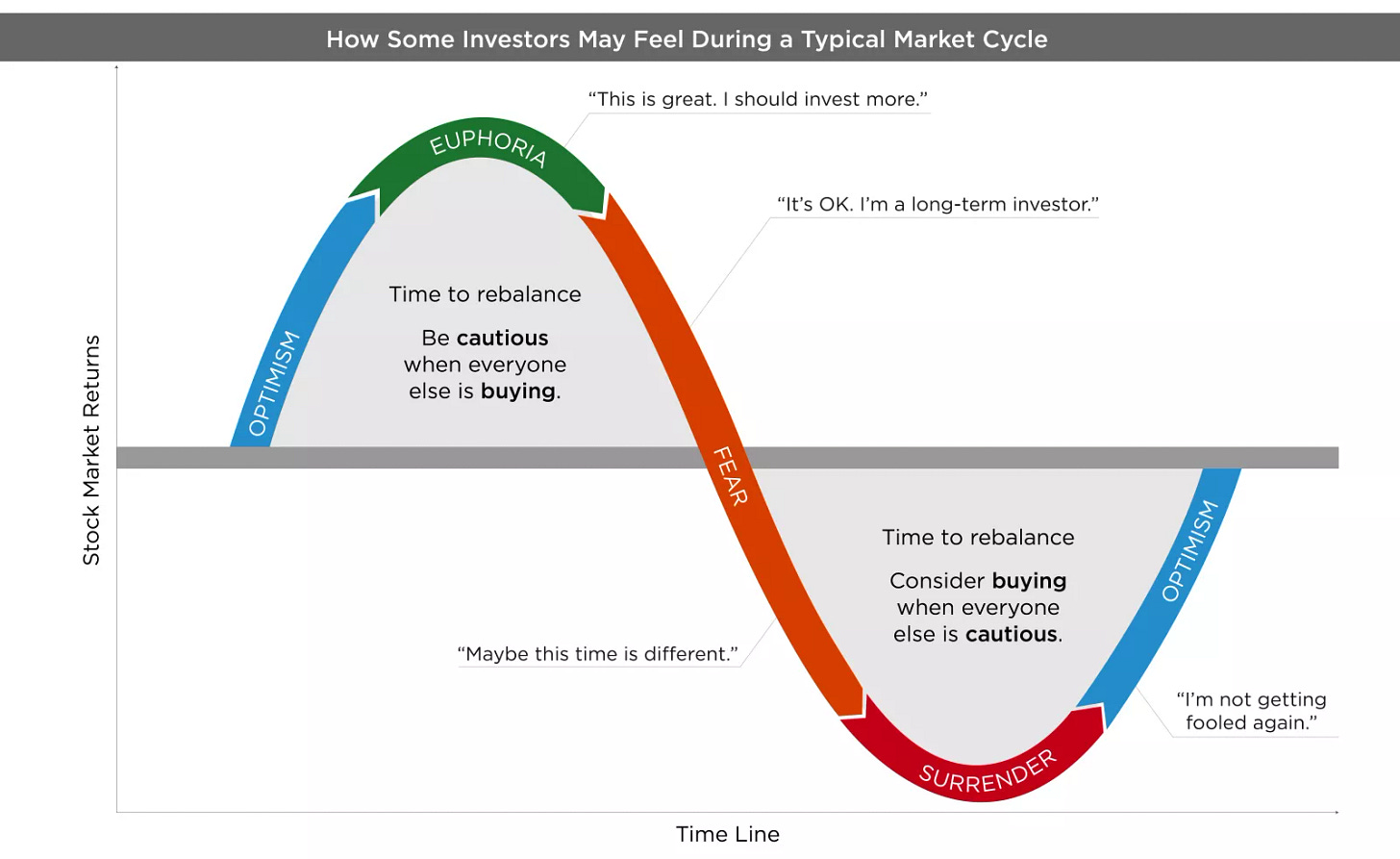The Most Common Investing Mistakes (And How Not to Be “That Guy”)
Investing has never been easier for individual investors. You can open a brokerage account in minutes, you can find financial info everywhere, and trading is suddenly “cool.”
But the not-so-sexy truth? — Most individual investors lose money over the long term.
It is because many investors make simple but avoidable mistakes.
I know, because I’ve been there. When I started investing 20 years ago, I made every rookie mistake in the book. It was expensive, stressful, and humbling.
Here are the DOs and DON’Ts to save you from this pain.
If you stick to them — your future self will thank you.
DO: Have a Plan
Investing without a plan is like getting in your car and just driving. Sure, you’ll end up somewhere, but probably not where you wanted. Figure out what you’re investing for — retirement, a house, your kid’s college — and how much risk you can actually handle. Build your portfolio around that. And don’t forget to check in once a year. Life changes, and so should your plan.
DO: Learn the Basics
You don’t need to be Warren Buffett, but you should know the difference between a stock and a bond, what compound interest is, and why risk matters. A little knowledge goes a long way.
DO: Diversify
Putting all your money in one stock? That’s gambling, not investing. If that stock tanks, so does your portfolio. I never let one sector be more than 20-25% of my investments, and no single stock more than 10%. And remember to rebalance —some stuff will grow faster than others, and you want to keep your mix in check.
DON’T: Chase Hot Stocks
It’s tempting to buy whatever’s in the headlines. You find quite a few people are talking about them as the way to “get rich quickly”.
In most of the cases by the time a stock is “hot”, much of the upside is already gone. Chasing trends often means buying high and selling low.
Stick to what you know, and don’t let FOMO run your portfolio.
DON’T: Try to Time the Market
Nobody can predict the market — not even the pros. Jumping in and out just means you’ll miss the best days (and rack up stress). Instead, invest regularly, no matter what the market is doing. Let dollar-cost averaging do its thing. If you want, you can even automate this process to get your emotion 100% removed.
DON’T: Ignore Fees
Fees might seem small, but over time, they eat into your returns. Frequent trading and/or high-fee funds can quietly drain your portfolio.
Pay attention to commission fee and spreads and select brokerage that fits your investing style. If you invest in funds, choose low-cost index funds or ETFs. Pay attention to expense ratios and avoid unnecessary trading.
Do not forget taxes either. Selling investments too soon or ignoring tax-advantaged accounts can cost you.
DON’T: Let Your Emotions Rule
This is the hardest part - investing is as much about psychology as discipline. Markets go up, markets go down. It’s normal. Panic selling or getting greedy will wreck your long-term results. You should understand the typical market cycle.
Be fearful when others are greedy and Be greedy only when others are fearful - Warren Buffett
Know what you own and why you own it.
And seriously: stop checking your portfolio every hour or doomscrolling financial news. It’ll only mess with your head.
DO: Keep an Emergency Fund
Don’t invest money you might need soon. If you have to sell in a downturn to cover an emergency, you’re locking in losses. Always keep some cash on hand for life’s surprises.
DON’T: Compare Yourself to Others
Your money, your goals. Ignore what your friends or random people on social media are doing. Focus on your own progress.
None of this is rocket science, but it works. Keep it simple, stay disciplined and let time do the heavy lifting.






